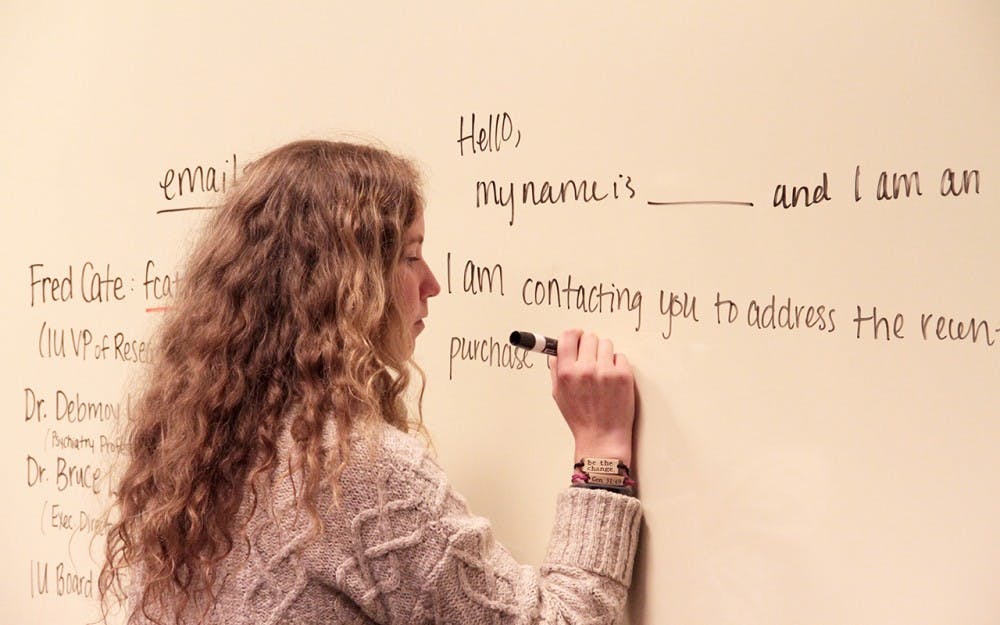IU sophomore and neuroscience major Emily Eherenman balanced a laptop in her palm at the head of the Oak Room and wrote names and emails of a few University faculty and trustees on a whiteboard.
Before all of her fellow members of Students for Life at IU arrived, she sat down and showed her friend, Kylie Frederick, photos of another girl’s new baby. They beamed and spoke about how adorable the child was. A few final students took their seats.
“Hello,” Eherenman wrote on the board. “My name is [blank] and I am an IU [blank]. I am contacting you to address the recent purchase of aborted baby brains ...”
Students for Life members composed the emails, focusing on discouraging Alzheimer’s research performed on aborted fetal tissue, Tuesday evening at the Indiana Memorial Union.
To the knowledge of IU Vice President for Research Fred Cate, faculty has engaged in one instance of research using brain tissue directly from an abortion. The University of Washington shipped the tissue as part of federally funded work, which has allowed IU faculty to create cell lines for current and future study.
“We are the only undergraduate pro-life group on campus, so we felt it was our duty to address this issue and let them know we’re IU students and we do not support this,” Eherenman said. “We would appreciate, and we would actually encourage, that they do not continue this practice, even though the research is important for Alzheimer’s disease.”
Eherenman, vice president of Students for Life at IU, said she would like the University to find other means of conducting the research.
“The research cannot be done with the tissues available from other sources, such as spontaneous miscarriages, and it addresses a horrible, degenerative disease that affects more than 5 million Americans and is the second-fastest growing disease in the country,” Cate said.
IU researchers have conducted other fetal tissue studies on cell lines traceable to as far back as the 1960s and as far away as the Netherlands, Cate said. The same lines have been crucial in the development of vaccines for chickenpox, polio, hepatitis, rabies and more.
Despite possible benefits of the tissue and subsequent cell lines, Eherenman expressed concern that studies on current fetal brain tissue could create a market for aborted fetuses.
“If they need more brains to research on, they can, hence, encourage abortion,” she said. “As an IU student club, we do not agree with that, and we don’t like that our university is propagating it.”
The University of Washington is only allowed by law to charge for the shipping of the tissue, Cate said, which indicates the practice is not likely to incentivize abortions.
Beyond the research and the laws and the potential market, members of Students for Life said they believe the bodies of aborted fetuses should be treated with more respect and there should be proof the parents had agreed to donate the body to science.
Eherenman said she worries the use of aborted fetal tissue in research could still cast a positive light on abortion, which Students for Life will not support.




